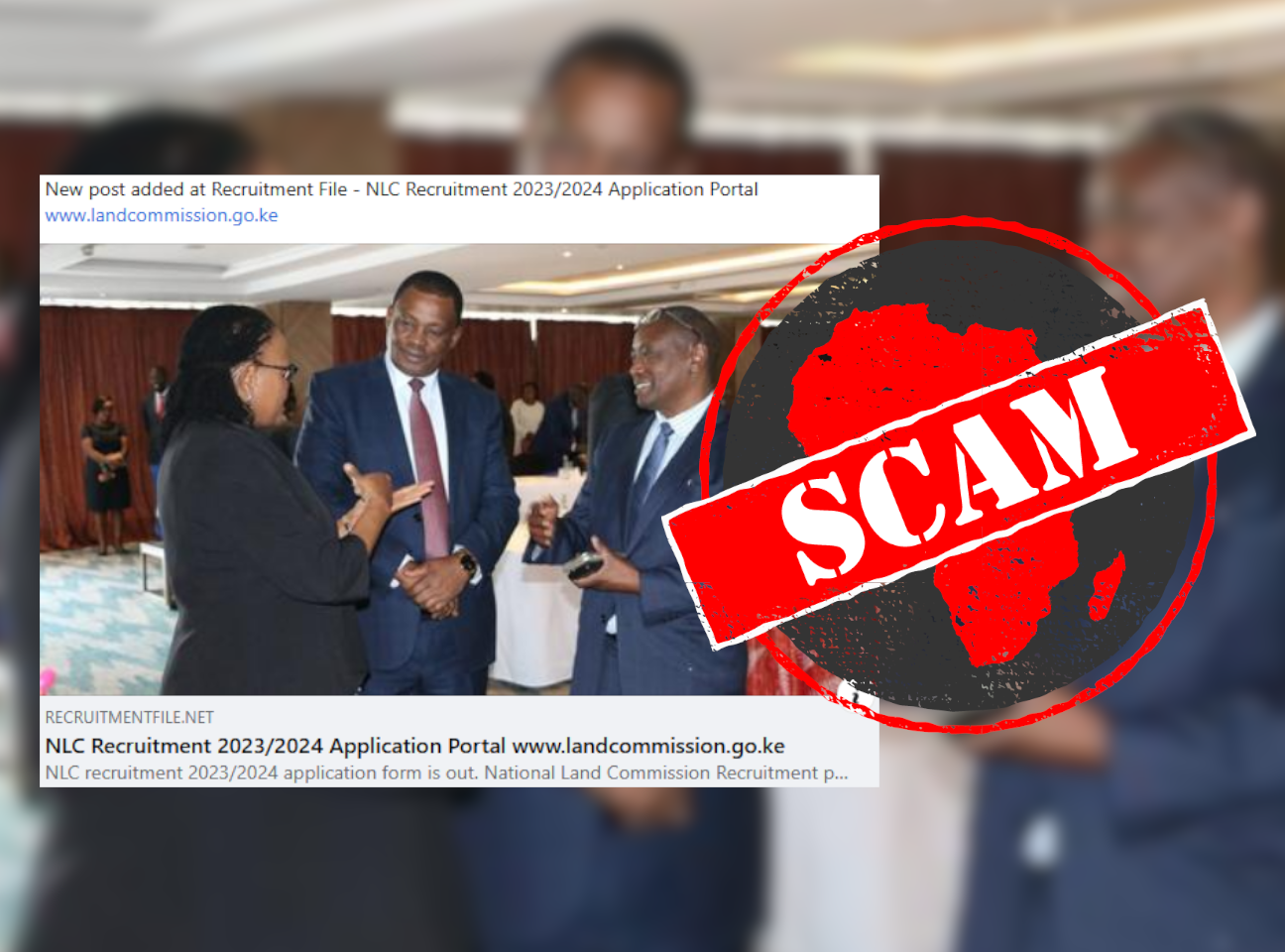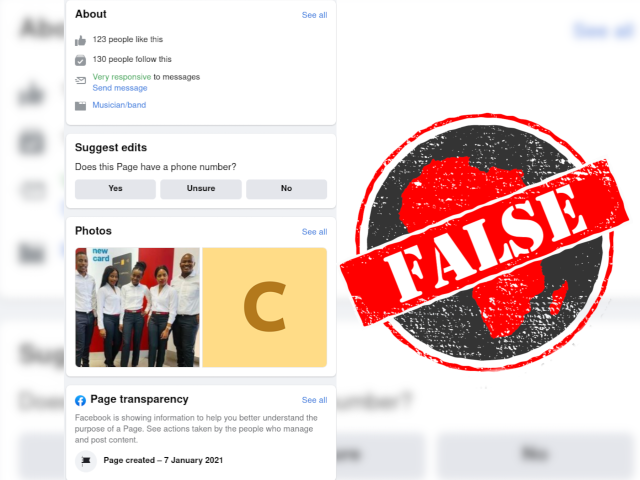IN SHORT: The vacancy notice requires you to jump through hoops to apply. Don’t bother – it’s not real.
A job advert seemingly from the National Land Commission (NLC) has been posted on Facebook.
The post reads: “New post added at Recruitment File – NLC Recruitment 2023/2024 Application Portal www.landcommission.go.ke.”
The land commission is a government agency that protects and manages Kenya’s publicly owned land.
But the link doesn’t go to the commission’s official website at landcommission.go.ke. Instead, it goes to a page on the site recruitmentfile.net.
This page offers jobs not only at the NLC, but at other organisations.
It says the NLC is seeking to recruit staff for the offices of valuation and taxation directorate, legal affairs and dispute resolution, human resources and more.
It then gives a link to another page that requires you to log in. But the option to register cannot be found.
The application process is given as:
First visit the NLC job application portal, select the register button to begin, input your name, email address ID number, phone number and password, then click the confirmation link sent to your email.
Return to NLC portal and login, Fill the application form with your authentic data, upload necessary credentials according to stipulated size, proofread your application and then submit.
But is the job ad legit?

‘Applicants Beware!!’
None of the positions offered are listed on the NLC’s official website.
The NLC has posted a screenshot of the recruitmentfile.net page on its verified Twitter page – stamped “FAKE” in red.
We wish to inform the public that the jobs advertisement purportedly by the National Land Commission circulating online is FAKE.
— National Land Commission (@NLC_Kenya) February 21, 2023
We only advertise on our website https://t.co/GAxwkirkEK and local newspapers whenever vacancies arise.
Applicants Beware!! pic.twitter.com/509S1Sa6st
It tweeted: “We wish to inform the public that the jobs advertisement purportedly by the National Land Commission circulating online is FAKE. We only advertise on our website http://landcommission.go.ke and local newspapers whenever vacancies arise. Applicants Beware!!”
Republish our content for free
For publishers: what to do if your post is rated false
A fact-checker has rated your Facebook or Instagram post as “false”, “altered”, “partly false” or “missing context”. This could have serious consequences. What do you do?
Click on our guide for the steps you should follow.
Publishers guideAfrica Check teams up with Facebook
Africa Check is a partner in Meta's third-party fact-checking programme to help stop the spread of false information on social media.
The content we rate as “false” will be downgraded on Facebook and Instagram. This means fewer people will see it.
You can also help identify false information on Facebook. This guide explains how.





Add new comment